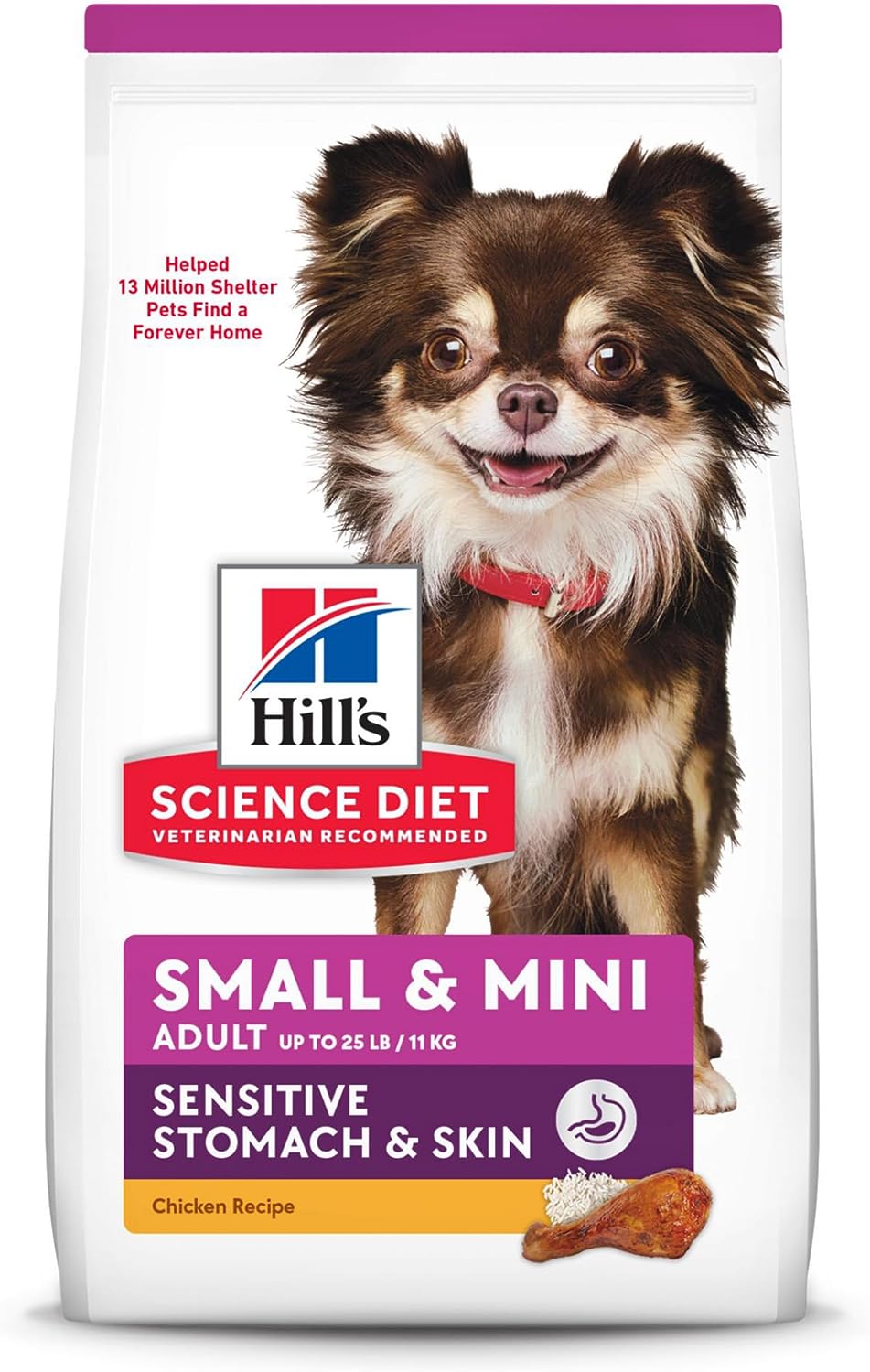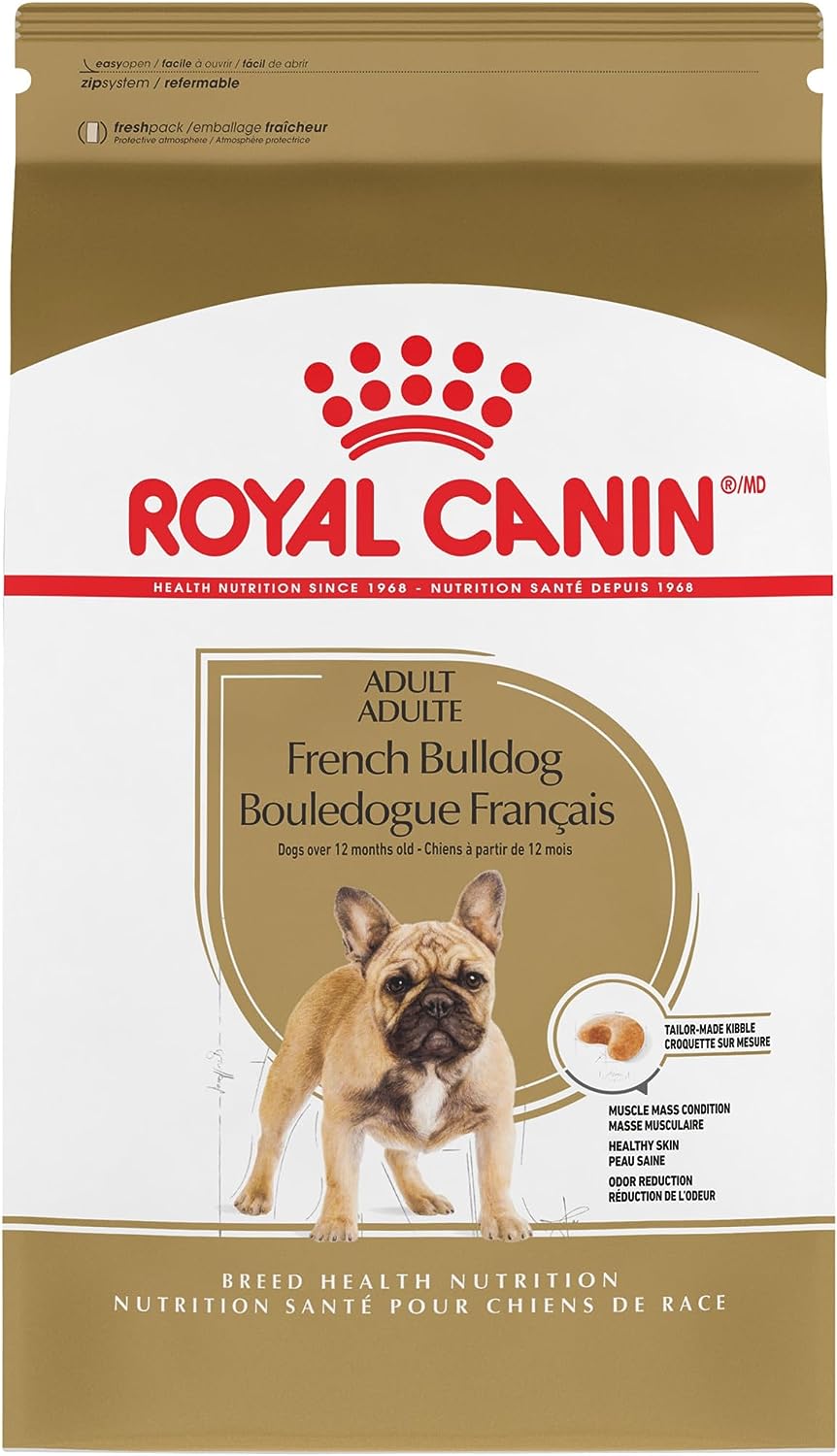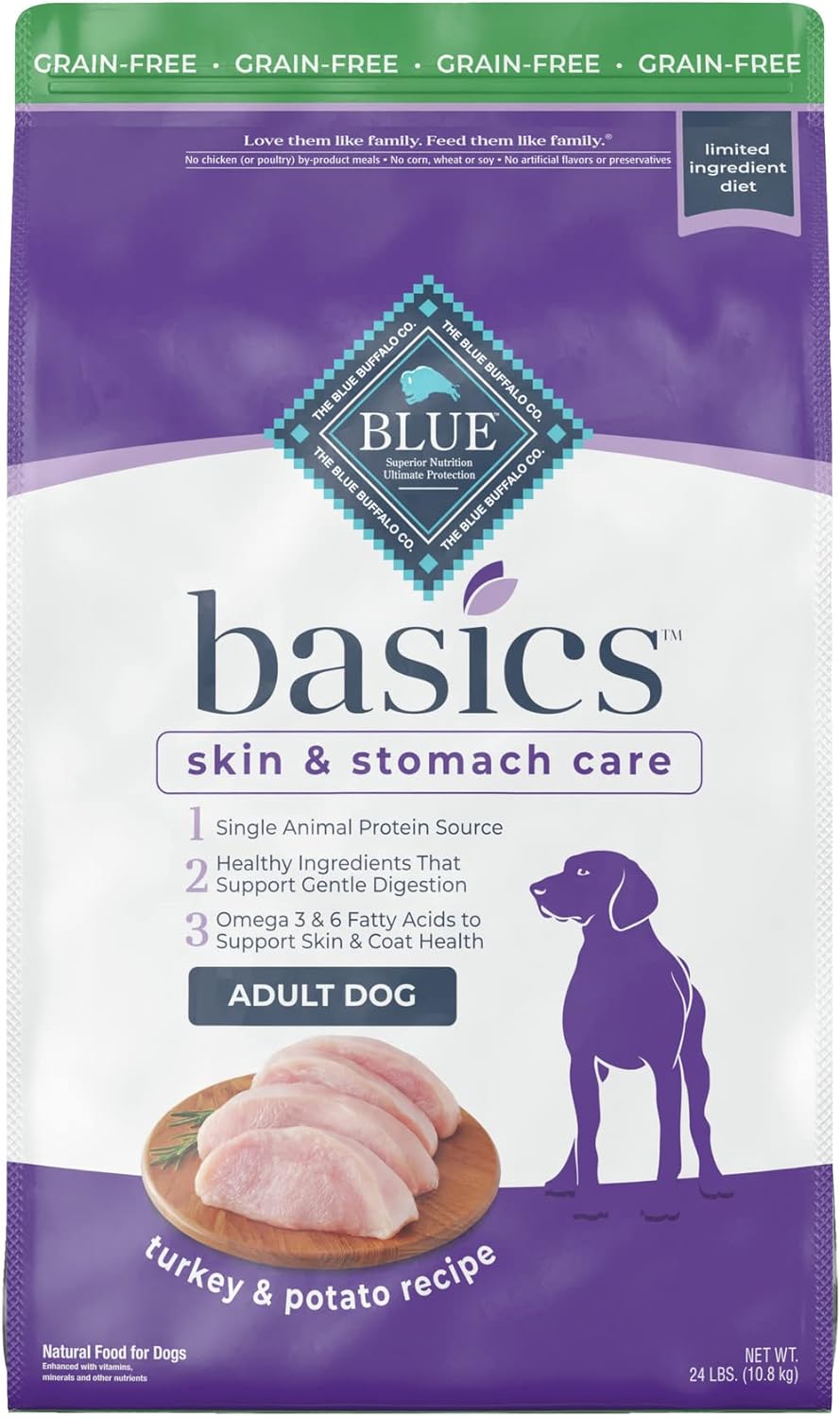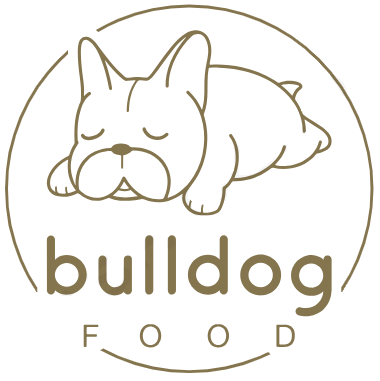
French Bulldogs are beloved pets known for their affectionate nature and distinctive looks. However, they are also prone to a variety of health issues, particularly sensitive stomachs. Choosing the right best food for french bulldogs with sensitive stomach is crucial to maintaining their health and happiness.
Understand the Sensitive Stomach Problem of French Bulldogs
Causes of Sensitive Stomach in French Bulldogs
French Bulldogs, due to their genetic makeup and unique physiology, are predisposed to having sensitive stomachs. Several factors can contribute to gastrointestinal issues in these dogs:
- Food Allergies and Intolerances: French Bulldogs can develop allergies or intolerances to specific ingredients commonly found in dog food, such as gluten, dairy, certain proteins, or additives. These reactions can lead to symptoms like vomiting, diarrhea, and abdominal discomfort.
- Poor Diet: Low-quality dog food or diets lacking in essential nutrients may contribute to digestive disorders. Foods with artificial colors, preservatives, and fillers can be especially problematic, potentially exacerbating an already sensitive stomach.
- Brachycephalic Syndrome: As a brachycephalic breed, French Bulldogs have a shorter, flatter snout, which can lead to swallowing issues and increased air intake while eating. This can cause bloating, gas, and other digestive discomforts.
- Stress and Anxiety: French Bulldogs are known to be companionable but can suffer from separation anxiety or stress due to changes in their environment. This emotional stress can impact their gastrointestinal health, leading to symptoms like reduced appetite or gastrointestinal upset.
- Underlying Health Conditions: Conditions such as inflammatory bowel disease (IBD), gastroenteritis, or pancreatitis can often be the root cause of a sensitive stomach in French Bulldogs. These require veterinary intervention and specific dietary management.
- Overeating and Obesity: Overfeeding or providing rich, fatty treats can overwhelm the digestive system of a French Bulldog. This can lead to obesity and associated digestive issues, including increased gastric motility and discomfort.
Understanding these causes helps pet owners take proactive steps in diet selection and overall care, ensuring their French Bulldog’s digestive health is well managed.
Signs and Symptoms to Watch Out For
As a French Bulldog owner, it is important to be vigilant about the signs and symptoms of a sensitive stomach. Catching these early can help prevent more serious health issues and ensure your pet remains comfortable and happy. Here are some key indicators to watch for:
- Vomiting: Occasional vomiting in dogs is not unusual, but frequent or severe episodes can be a sign of digestive distress. Keep an eye out for patterns related to specific foods, activities, or times of day.
- Diarrhea: Loose, watery stools can indicate that your French Bulldog’s gastrointestinal system is struggling to process their food. Persistent diarrhea, especially if it contains blood or mucus, warrants a visit to the veterinarian.
- Flatulence: While gas can be common in brachycephalic breeds due to their unique physiology, excessive flatulence can signal dietary issues or an intolerance to certain ingredients.
- Abdominal discomfort and bloating: Your dog might exhibit signs of pain or discomfort in their abdominal area, such as whining, restlessness, or reluctance to lie down. A bloated abdomen can be a serious condition and should be addressed promptly.
- Lethargy: A decrease in energy levels or general lethargy can be a sign that your dog is not feeling well. This can be due to malabsorption of nutrients or discomfort from gastrointestinal issues.
- Changes in appetite: A sensitive stomach might lead to a reduced interest in food. Conversely, a dog with gastrointestinal discomfort may eat grass or other non-food items in an attempt to self-soothe, which can further aggravate the problem.
- Weight loss: Unintended weight loss can occur if your dog is not absorbing nutrients properly or if they have a decreased appetite. This is particularly concerning in a breed that is prone to other health issues, and should be addressed by a veterinarian.
- Excessive licking or chewing: Dogs may lick their paws or other parts of their body excessively if they are experiencing nausea or abdominal pain. This behavior is a coping mechanism but can lead to secondary issues like skin irritation.
By recognizing and promptly addressing these signs, you can help manage your French Bulldog’s sensitive stomach effectively. Veterinarians can provide valuable guidance tailored to your dog’s specific needs, including dietary recommendations and treatments.
Criteria for Selecting Food for French Bulldogs with Sensitive Stomachs

Choosing the right food for a French Bulldog with a sensitive stomach requires careful consideration of several factors. Let’s explore the key criteria to keep in mind when selecting the ideal diet for your Frenchie.
Essential nutritional components
When searching for the best food for French Bulldogs with sensitive stomachs, prioritize options that include:
– High-quality, easily digestible proteins (e.g., chicken, turkey, or novel proteins like duck or rabbit)
– Moderate fat content to support energy needs without overwhelming the digestive system
– Limited, high-quality carbohydrate sources (e.g., sweet potatoes, pumpkin)
– Adequate fiber to promote healthy digestion
– Essential vitamins and minerals for overall health
– Omega-3 fatty acids for their anti-inflammatory properties
Ingredients to avoid
Equally important is knowing which ingredients to steer clear of when selecting food for your sensitive-stomached Frenchie:
– Common allergens such as beef, dairy, wheat, and soy
– Artificial preservatives, colors, and flavors
– Excessive fillers or by-products
– High-fat content, which can be difficult to digest
– Ingredients known to cause gas, such as legumes in large quantities
Suitable food types (dry, wet, homemade)
French Bulldogs with sensitive stomachs may respond differently to various food types:
1. Dry food (kibble): Often convenient and cost-effective, but choose a high-quality, easily digestible option.
2. Wet food: Can be easier to digest and provides additional hydration, which is beneficial for Frenchies.
3. Homemade diets: Offer complete control over ingredients but require careful planning to ensure nutritional balance.
Some French Bulldogs benefit from a combination of these food types. Always consult with your veterinarian before making significant changes to your dog’s diet.
Top Brands and Products for French Bulldogs with Sensitive Stomachs
Brands for best food for french bulldogs with sensitive stomach :
Hill’s Science Diet

For French Bulldogs with sensitive stomachs, Hill’s Science Diet offers a specialized formula designed to address their needs effectively. Here are the key benefits of Hill’s Science Diet Sensitive Stomach and Skin formula :
- Specifically formulated for sensitive stomach and skin: This diet is crafted to reduce digestive upset and improve skin health for French Bulldogs with sensitivities.
- Contains easily digestible ingredients: The ingredients are carefully selected to minimize allergic reactions and digestive issues while supporting efficient digestion.
- Provides essential nutrients: It supplies necessary nutrients such as proteins, vitamins, and minerals to maintain overall health and immune function in dogs.
- Veterinarian-recommended: Hill’s Science Diet is a trusted brand recommended by veterinarians, ensuring quality and effectiveness.
- Easily Digestible Protein Sources: Such as chicken or turkey, which are lean and easier on sensitive digestive systems.
- High-Quality Carbohydrates: Often sourced from ingredients like rice or oats, which provide gentle, easily digestible energy.
- Prebiotic Fibers: These promote a healthy gut flora and aid digestion, improving nutrient absorption and bowel health.
- Omega Fatty Acids: Usually derived from sources like fish oil or flaxseed, these support skin and coat health, especially beneficial for dogs prone to sensitivities.
- Vitamins and Minerals: Essential nutrients like vitamins A, C, E, and minerals such as zinc and selenium contribute to overall health and immune function.
- No Artificial Additives: The formula typically excludes artificial flavors, colors, and preservatives, reducing the risk of triggering sensitivities in dogs.
These ingredients are carefully selected to minimize allergens and irritants while providing balanced nutrition that supports digestive health and overall well-being for French Bulldogs with sensitive stomachs.
Royal Canin

Royal Canin offers specialized formulas that are considered the best food for french bulldogs with sensitive stomach:
- Gentle Formula : These products are designed to be easily digestible and minimize stomach sensitivity. They often contain gentle ingredients that are easier on the digestive system compared to regular food.
- Appropriate Fiber Content : For dogs with sensitive stomachs, fiber can help balance the digestive system and support easier digestion.
- Scientifically-Backed Ingredients : Royal Canin uses scientific research to develop breed-specific formulas, ensuring that selected ingredients can improve overall health and digestive function.
- Digestive Health Support : Specialized products often include nutrients that support digestive health, addressing issues like diarrhea or difficulty digesting.
- Easily Digestible Nutrients: Ingredients such as brown rice, salmon, chicken, or other easily digestible protein sources are often included to minimize digestive upset and support digestion.
- Natural Fiber: Adequate fiber content helps balance the digestive system and promote easier digestion.
- Probiotics and Prebiotics: These products often include probiotics and prebiotics to support a healthy gut microbiome balance, improving digestive health.
- Low Digestive Stimulants: Avoidance of digestive stimulants like other grains, seeds, unnecessary preservatives, and artificial colors.
- Balanced Fats and Proteins: Adjusted levels of fats and proteins meet the nutritional needs of French Bulldogs while minimizing digestive stress.
- No Unnecessary Additives: Ensuring the product does not contain unnecessary fillers or additives that could potentially irritate or bloat the stomach.Top of Form
Therefore, if your French Bulldog has a sensitive stomach, Royal Canin’s breed-specific products tailored for this breed could be a good choice to provide them with a diet that is easier to digest and meets their specific health needs. However, always consult your veterinarian before making any changes to your dog’s diet.
Blue Buffalo

To analyze whether Blue Buffalo Limited Ingredient Diet is suitable as the best food for french bulldogs with sensitive stomach, we need to consider the following factors:
- Limited Ingredient Selection: Blue Buffalo Limited Ingredient Diet is designed with a short list of ingredients, typically focusing on one or a few main ingredients. This helps minimize the risk of stomach sensitivities caused by allergenic substances.
- Type of Food: Blue Buffalo offers various options, including both wet and dry food. Choosing the appropriate type of food for your French Bulldog is crucial, as some dogs may prefer or digest one type better than the other.
- Nutritional Content: Ensure that the product provides adequate nutrition for your dog, including essential vitamins, minerals, and fatty acids.
- User Reviews: Research feedback from users who have used this product for their dogs, especially those with French Bulldogs with sensitive stomachs.
- Veterinary Advice: It’s always best to consult your veterinarian before changing your dog’s diet, especially if they have sensitive stomach issues.
- Limited Ingredient Profile: This type of food features a short, carefully selected list of main ingredients to minimize potential allergens such as grains, cereals, or common proteins that may cause digestive issues.
- Easy Digestibility: Ingredients are chosen for their digestibility and to support optimal absorption, catering to dogs with sensitive stomachs.
- Free from Unnecessary Additives: The product typically avoids unnecessary additives like artificial preservatives, colors, or flavors to reduce the risk of sensitivities and enhance safety for dogs.
- Complete Nutrition: It provides balanced nutrition including proteins, fats, carbohydrates, vitamins, and minerals in appropriate proportions to meet a dog’s nutritional needs.
- Certification or Quality Assurance: These products often come with certifications or information about manufacturing processes and quality standards, ensuring consumer confidence in their safety and effectiveness.
Blue Buffalo could be a best food for french bulldog . However, choosing the most suitable food should still be based on veterinary advice and observing your dog’s response to the new diet.
How to Switch to New Food for French Bulldogs
Switching to a new food can be a delicate process, especially for French Bulldogs with sensitive stomachs. A gradual transition is crucial to avoid gastrointestinal upset, such as vomiting, diarrhea, or constipation.
Step-by-Step Transition Process
- Initial Phase (Days 1-3): Begin by mixing a small amount of the new food with your dog’s current food. A ratio of 25% new food and 75% current food is recommended. Observe your French Bulldog for any signs of digestive discomfort or allergic reactions.
- Intermediate Phase (Days 4-6): If your dog is tolerating the new food well, increase the proportion to 50% new food and 50% current food. Continue to monitor for any adverse reactions, such as changes in stool consistency or eating behavior.
- Advanced Phase (Days 7-9): Assuming there have been no issues, adjust the mixture to 75% new food and 25% current food. By this stage, your dog should be becoming accustomed to the new diet, but continue to watch for any signs of intolerance.
- Final Phase (Day 10 and Beyond): Finally, you can feed 100% of the new food. Even in this phase, keep an eye out for any delayed signs of discomfort or allergies, and consult your veterinarian if you notice any troubling symptoms.
Monitoring and Adjustments
During the transition process, it’s essential to observe your French Bulldog closely. Signs that the new food may not be suitable include persistent vomiting, diarrhea, excessive gas, or a noticeable change in energy levels. If any of these symptoms occur, it might be necessary to revert to the previous food and consult your veterinarian for advice.
Tips for a Smooth Transition
- Consistency: Maintain consistent feeding times and amounts. Feeding your dog at the same times each day can help their digestive system adjust more smoothly.
- Hydration: Ensure your dog has plenty of fresh water, as hydration is crucial during periods of dietary change.
- Patience: Each dog is unique, and some may require a slower transition. If your French Bulldog shows signs of difficulty, consider extending each phase by a few days.
- Small Portions: Initially smaller portion sizes can ease the digestive workload and help your dog adjust to the new ingredients more comfortably.
- Mix Thoroughly: Ensure the new and current foods are well-mixed to avoid your dog picking out only the familiar bits.
When to Consult a Veterinarian
If your French Bulldog experiences severe or prolonged symptoms, such as continuous vomiting, severe diarrhea, refusal to eat, or significant weight loss, consult your veterinarian immediately. These could be signs of a more serious issue that requires professional attention. Additionally, your vet can provide personalized advice and may suggest alternative dietary options suited to your dog’s specific health needs.
By following these guidelines and remaining vigilant throughout the transition, you can help ensure a smooth switch to a new diet for your French Bulldog with a sensitive stomach.
Some Additional Tips for Managing a Sensitive Stomach
Regular Feeding Schedule
So we asked the question: ” How much should a french bulldog eat ?”
Maintaining a consistent feeding schedule is important for dogs with sensitive stomachs. Feed your French Bulldog at the same time every day to help regulate his digestive system. This consistency can minimize the risk of digestive upset and promote better nutrient absorption
Avoid Table Scraps and Treats
Refrain from giving your French Bulldog table scraps or high-fat treats, as these can contribute to gastrointestinal distress. Stick to veterinarian-approved treats that are specifically formulated for dogs with sensitive stomachs. Always check the ingredient list for potential allergens.
Probiotic Supplements
Incorporate probiotic supplements into your dog’s diet. Probiotics promote a healthy balance of gut bacteria, which aids in digestion and boosts immune function. These supplements can often be sprinkled over your dog’s regular food and are available in various forms, including powders and chews.
Vitamin and mineral supplementation
While a balanced diet should provide most necessary nutrients, French Bulldogs with sensitive stomachs may benefit from targeted supplementation. Omega-3 fatty acids, for example, have been shown to have anti-inflammatory properties that can soothe the digestive tract. Always consult with your veterinarian before adding any supplements to your dog’s diet to ensure they are appropriate and safe for your Frenchie’s specific needs.
Identify and Avoid Triggers
Identify potential food triggers that might be causing your French Bulldog’s stomach issues. Common allergens include beef, dairy, corn, wheat, and soy. If you suspect a particular ingredient is problematic, consult your vet about conducting an elimination diet to pinpoint the offender.
Hydration and Water Quality
Ensure your dog always has access to fresh, clean water. Hydration is essential for good digestive health. Consider using filtered water if your local tap water contains high levels of minerals or impurities that could affect your dog’s stomach.
Smaller, More Frequent Meals
Instead of feeding your dog one or two large meals a day, opt for smaller, more frequent meals. This approach can prevent overwhelming your dog’s digestive system and reduce the likelihood of stomach upset.
Stress Management
Stress can exacerbate digestive issues in dogs. Create a calm and stable environment for your French Bulldog to reduce anxiety. Activities like regular exercise, mental stimulation, and quality time with family members can contribute to lower stress levels.
Slow Feeder Bowls
Using a slow feeder bowl can help dogs that eat too quickly. Rapid consumption can lead to gulping air along with food, which may cause gas, bloating, and vomiting. Slow feeder bowls encourage your dog to eat more slowly and chew their food thoroughly.
Regular Veterinary Check-Ups
Regular check-ups with your veterinarian are essential to monitor your dog’s overall health and digestive system. During these visits, discuss any ongoing issues or concerns, and get tailored advice for managing your French Bulldog’s sensitive stomach.
Tailored Exercise Regimen
A regular exercise routine can improve your dog’s digestive health by promoting regular bowel movements and reducing stress. However, avoid vigorous activity immediately before or after meals to prevent potential gastrointestinal issues like bloat.
Food Storage and Hygiene
Properly store your dog’s food in airtight containers to maintain freshness and prevent contamination. Clean your dog’s bowls daily to remove bacteria and leftover food particles that could upset your dog’s stomach.
Implementing these additional tips and closely monitoring your French Bulldog’s health and dietary habits can significantly improve their digestive health and overall well-being.
Conclusion
Choosing the best food for french bulldogs with sensitive stomach involves understanding their unique nutritional needs and avoiding common allergens. Always transition to new foods slowly and monitor your dog’s reaction. Consulting a veterinarian for personalized advice is crucial for your dog’s health and well-being.
By following these guidelines, you can ensure that your French Bulldog enjoys a happy, healthy life with fewer digestive issues.

At bestfoodforfrenchbulldog.net, Frenchie Feast Co is dedicated to providing the best information and advice on nutrition and food for French Bulldogs. We understand that every dog has unique nutritional needs, especially breeds like the French Bulldog. Therefore, we continually research and seek out optimal nutritional solutions.
CEO Lincoln Martin is not only the founder of BestDogFoodForDachshunds.net but also a proud Dachshund parent. With a deep understanding of the unique dietary needs of Dachshunds, Lincoln Martin is committed to helping fellow dog owners make informed decisions about their pets’ nutrition.
Driven by a love for animals and a desire to share valuable insights, our team works tirelessly to research and curate the most reliable and up-to-date information on dog food, health, and care. From reviewing the latest products to offering practical tips and advice, we strive to be your trusted source for everything Dachshund-related.
Whether you’re a new Dachshund owner or a seasoned enthusiast, you can trust the expertise and dedication of the team at BestDogFoodForDachshunds.net to support you on your journey of providing the best care for your furry friend.
